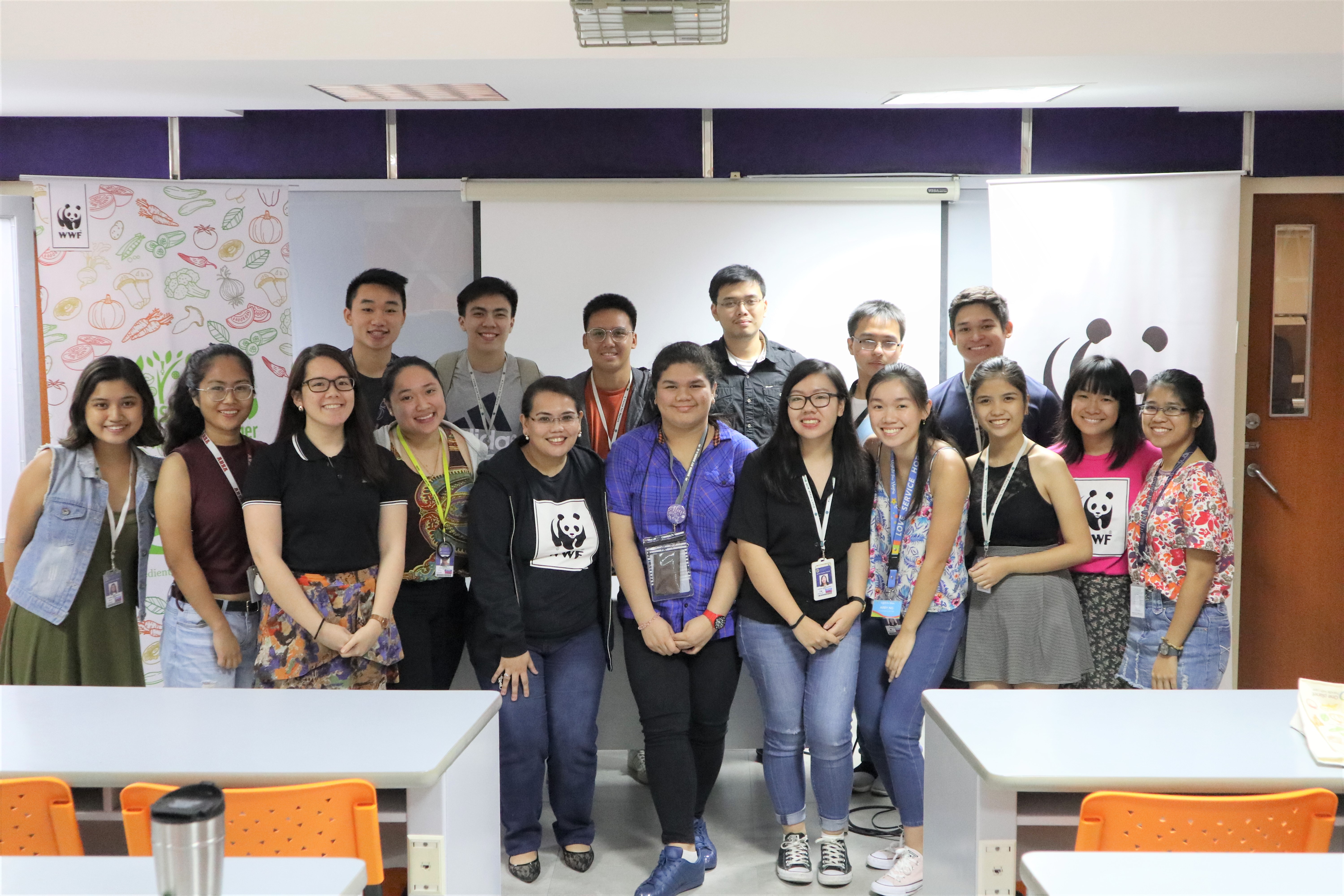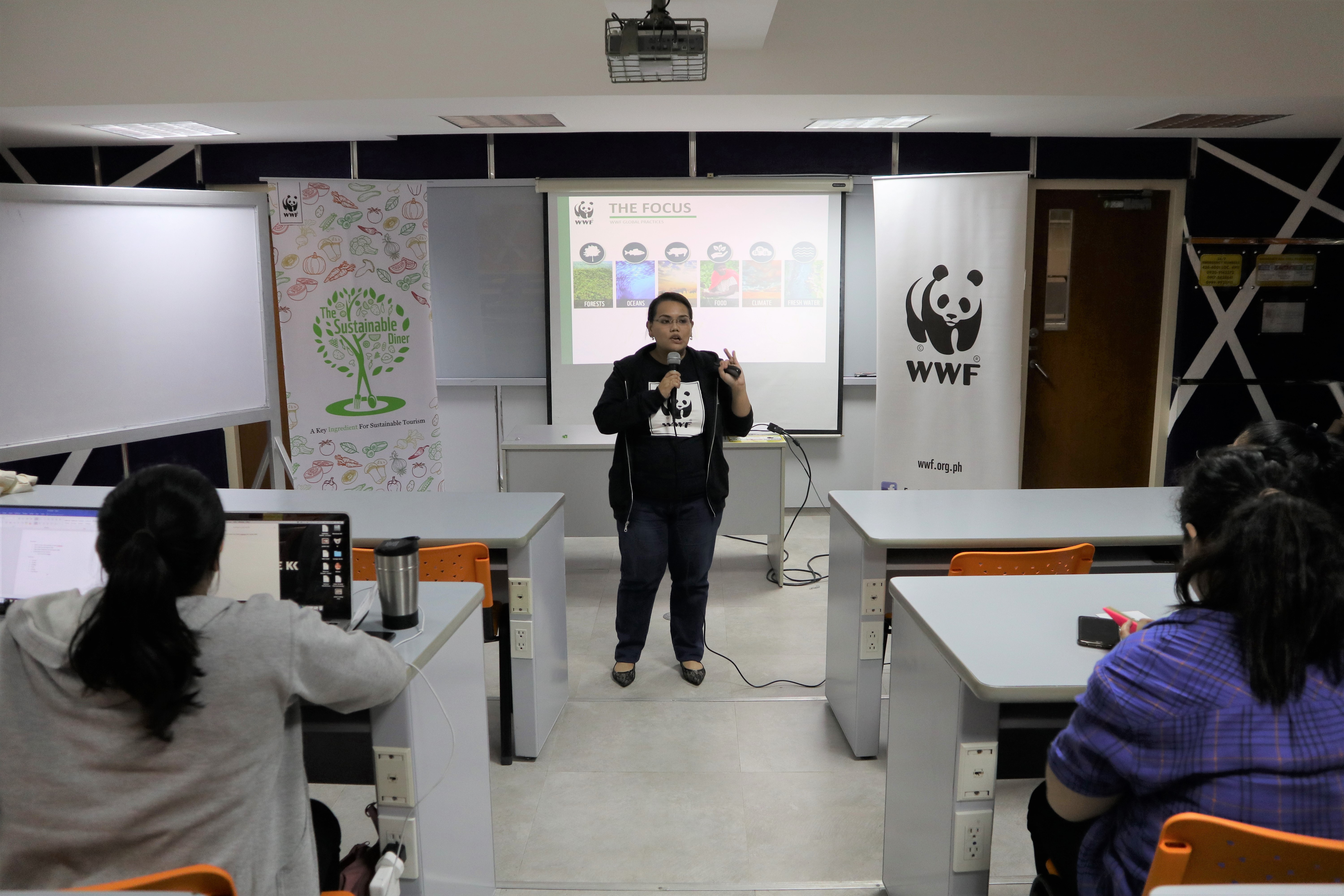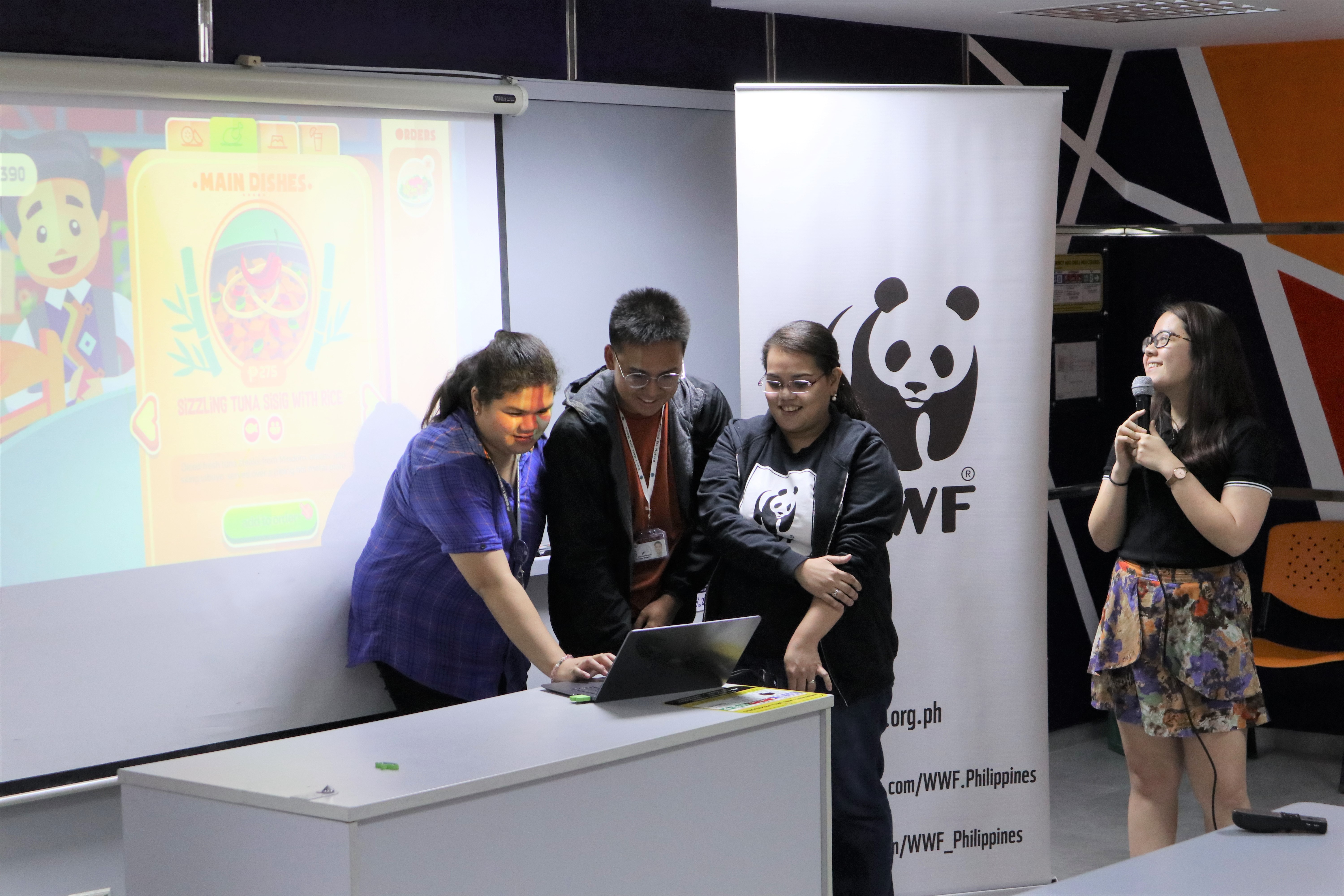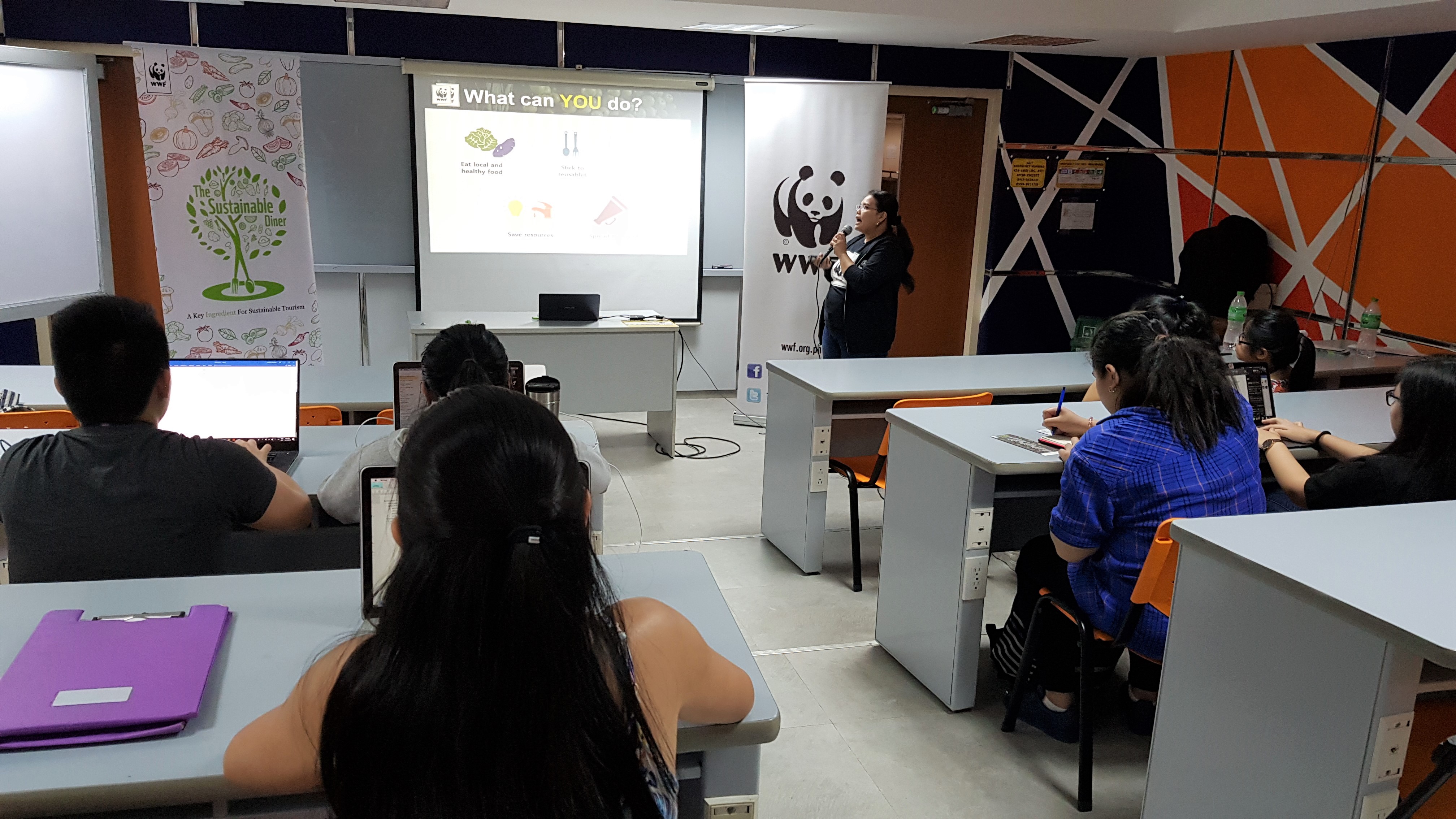The Sustainable Diner and the Ateneo Environmental Science Society Present Green Your Eats!
November 2018

The Sustainable Diner project team of WWF-Philippines together with students from the Ateneo Environmental Science Society. Photo © Gabriel Villalon / WWF-Philippines
Last November 12, 2018, World Wide Fund for Nature (WWF) Philippines’ The Sustainable Diner: A Key Ingredient for Sustainable Tourism project was invited to speak at the Ateneo De Manila University for Green Your Eats!, a talk on sustainable consumption and production and the environmental impacts of our dining options. The program, headed by the Ateneo Environmental Science Society (AESS), encouraged Ateneans to think about the environmental impacts of what they eat, where they eat, and how they eat. With the aim of developing and empowering the Filipino youth, the Ateneo ESS is a student environmental organization that provides adequate venues for environmental awareness, appreciation, and action through interactive campaigns grounded on scientific reason.

Melody Melo-Rijk, WWF-Philippines’ Project Manager for Sustainable Consumption and Production, introduces the participants to the different practices of the WWF Global Network. Photo © Gabriel Villalon / WWF-Philippines
Melody Melo-Rijk, WWF-Philippines’ Project Manager of Sustainable Consumption and Production in the Philippines, was invited as the resource speaker for the event. Speaking to a crowd consisting of students majoring in courses relevant to climate action such as environmental science, management, development studies, and political science, she shared with them the local and global mandate of WWF and the different practices our conservation strategies are focusing on, which includes food security. “The Food practice is one of the most important focal points of WWF’s global conservation efforts simply because food production is actually responsible for 70% of human-induced biodiversity loss,” says Melo-Rijk. “This is why we talk about sustainability in the food service sector. We always go back to three of WWF’s global goals: sustainable production, sustainable consumption, and waste elimination.”

Environmental Science students learning more about sustainable dining through the project’s Balay Kawayan interactive game. Photo © Gabriel Villalon / WWF-Philippines
Melo-Rijk also pointed out the importance of having students from diverse courses coming together to help reduce their contribution to global climate change. “When it comes to promoting sustainability, we welcome the participation and cooperation of people from different backgrounds. This goes the same for students like you who come from different courses and disciplines,” says Melo-Rijk. “In order to truly implement sustainable practices successfully, not just in the food service industry, we need the help of future managers, future politicians, future development workers, and of course, future scientists.”
In order to help the students further understand what sustainable dining is and how they can apply sustainable dining practices in their everyday lives, the project’s Balay Kawayan interactive game was also introduced in the middle of the talk. Moderated by Lorayne Roque, the project’s Sustainable Consumer Specialist, two volunteers got to play the restaurant simulation game which issued them a carbon footprint receipt reflecting the effects of their food and action choices to the environment. A short interactive quiz was also conducted at the end of the talk to ensure that the students were able to understand what it means to be a sustainable diner.

The students of Ateneo De Manila University being shown easy steps on how they can support the movement and become sustainable diners. Photo © Pamela Luber / WWF-Philippines
The participation of The Sustainable Diner project in Green Your Eats! is a part of the project’s planned campus tours, slated to run until 2020. In order for us to transform the food service sector, we recognize that engaging with the future leaders and trailblazers of this country is important in ensuring that future economic choices and business decisions will be more sensitive to the needs of our planet.
The Sustainable Diner project, under WWF-Philippines’ Sustainable Consumption and Production, is part of the International Climate Initiative (IKI). The Federal Ministry for the Environment, Nature Conservation, and Nuclear Safety (BMU) supports this initiative on the basis of a decision adopted by the German Bundestag.
